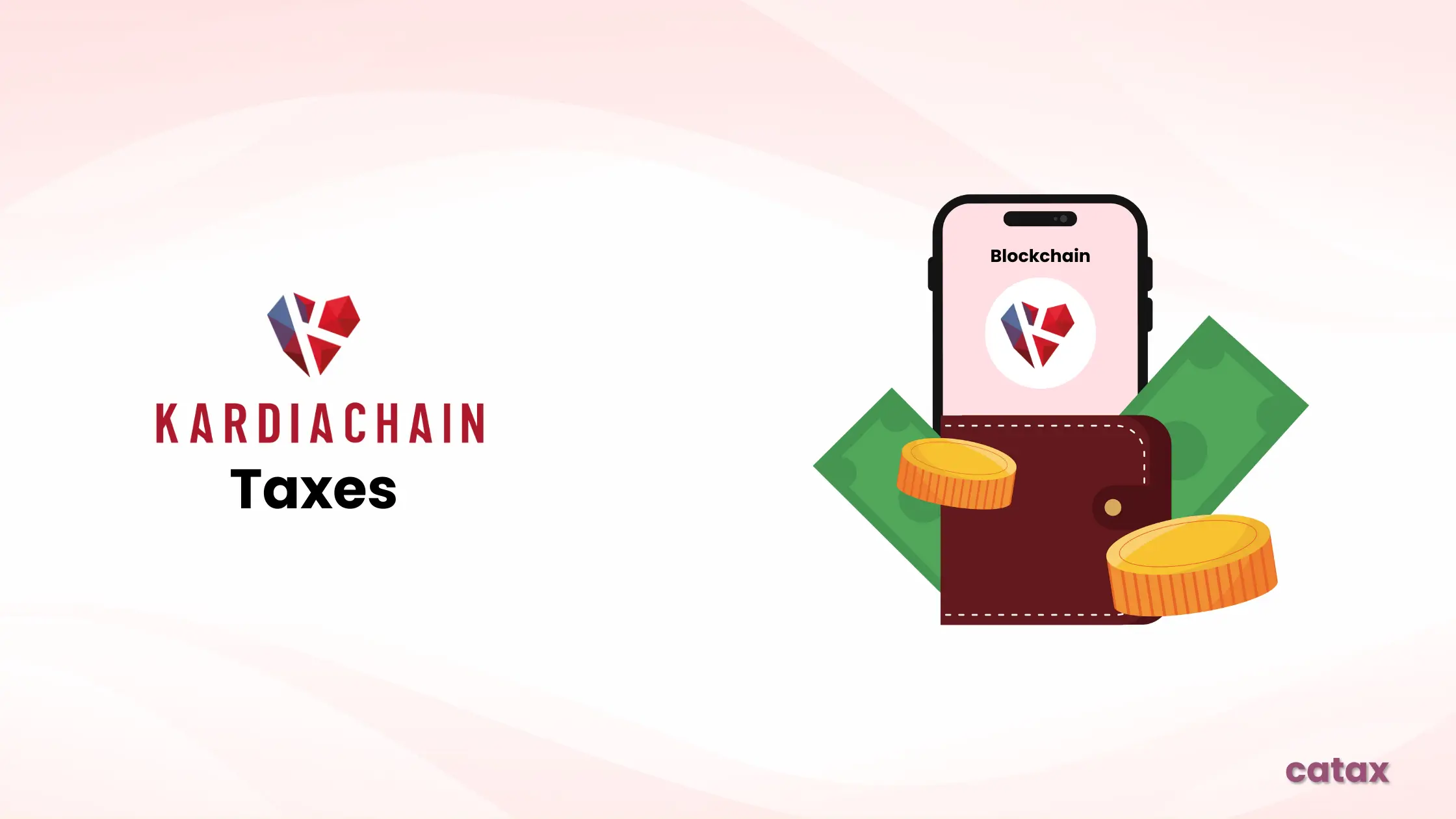Cryptocurrency tax rules are different in each country, and KardiaChain transactions may be taxed differently depending on where you live. Whether you buy, sell, trade, or stake KardiaChain, it is important to know how these activities are taxed and what you must report.
This guide explains KardiaChain tax rules in simple words so you can stay on top of your taxes and avoid any problems later.
- How to Connect Your KardiaChain Wallet to Catax
- Are KardiaChain Transactions Taxable?
- Can You Deduct Trading Fees and Other Costs?
- How Is KardiaChain Taxed Based on Holding Period?
- How Is Staking Income Taxed?
- Can You Claim KardiaChain Losses for Tax Benefits?
- How to Stay Compliant with KardiaChain Tax Rules
How to Connect Your KardiaChain Wallet to Catax
You can easily track your KardiaChain transactions and calculate taxes by connecting your wallet to Catax. Here’s how you can do it:
- Open your KardiaChain wallet or use a block explorer like MetaMask, Trust Wallet, Ledger, or any other supported wallet.
- Copy your public wallet address.
On Catax:
- Log in and select your country.
- Choose Chain, then search for KardiaChain Wallet.
- Paste your wallet address and click Connect.
Once connected, Catax will automatically track your KardiaChain transactions, making tax calculations simple and accurate.
Calculate My Taxes ➤Are KardiaChain Transactions Taxable?
Yes, in most countries, KardiaChain transactions are taxable. Governments usually treat KardiaChain as property, income, or capital assets, depending on how it is used.
When Do You Need to Pay Taxes?
You might have to pay taxes when you:
- Sell for a profit – If you sell KardiaChain for more than you paid, the profit is taxed as capital gains.
- Trade for another cryptocurrency – If you exchange KardiaChain for Bitcoin, Ethereum, or another crypto, it can be a taxable event.
- Use for purchases – If you spend KardiaChain to buy goods or services, it may trigger a capital gains tax if the value has gone up.
- Earn from staking – Many countries treat staking rewards as income when you receive them.
- Receive as payment – If you get KardiaChain for work or services, it is generally taxable income based on its value at the time you received it.
Since tax rules are different in every country, it’s important to check how your local tax office treats KardiaChain transactions.
Can You Deduct Trading Fees and Other Costs?
Many KardiaChain users wonder if they can deduct trading fees, network fees, and security costs. The answer depends on your country’s tax laws.
Some countries allow deductions for:
- Trading fees paid while buying or selling KardiaChain.
- Transaction (network) fees paid when moving KardiaChain between wallets.
- Security costs, like hardware wallets and private key storage.
Other countries only allow you to deduct:
- The cost of acquiring KardiaChain, which means you can subtract the original price when you sell it, but you cannot deduct extra fees like transaction or service charges.
Always check your country’s tax guidelines before claiming deductions.
How Is KardiaChain Taxed Based on Holding Period?
How long you keep KardiaChain before selling it can affect how much tax you pay. Different countries treat short-term and long-term holdings differently:
- Short-term holdings (less than a year) – These are often taxed at higher rates, similar to income taxes.
- Long-term holdings (more than a year) – Some countries offer lower tax rates for people who hold crypto longer.
- Flat tax rates – Some places have fixed rates no matter how long you hold your KardiaChain.
Knowing these rules can help you plan your selling and taxes better.
You can also check out our Country-Specific Guide for Crypto in Your country. This guide provides insights on regulations, tax implications, and compliance measures breifly explained for each country.
How Is Staking Income Taxed?
If you stake KardiaChain, the rewards you earn may also be taxed. How the tax applies depends on your country’s rules.
How Countries Treat Staking Rewards
- Taxed as income – Some countries treat staking rewards as normal income, meaning you owe taxes right when you receive the rewards.
- Taxed as capital gains – In other places, you only get taxed when you sell or exchange the staking rewards, and you pay tax only on the profit.
If you stake KardiaChain, it’s important to know exactly when your tax responsibility starts. Some countries tax rewards even if you don’t sell them yet. Always check your local tax laws before staking.
Can You Claim KardiaChain Losses for Tax Benefits?
If you sell KardiaChain at a loss, you might be able to lower your tax bill. Here’s how some countries deal with crypto losses:
How Countries Handle Crypto Losses
- Loss offsets – Some allow you to subtract losses from gains, so you only pay taxes on the remaining profits.
- Loss carryforward – If you have no gains this year, you might be able to carry your loss forward to future years.
- Limited deductions – Some countries do not allow you to deduct crypto losses at all.
Keeping complete records of every trade and transaction will help you report losses properly and save money when filing taxes.
How to Stay Compliant with KardiaChain Tax Rules
Following tax rules carefully is important when you deal with cryptocurrencies like KardiaChain. To stay safe and avoid problems:
- Learn how your country taxes KardiaChain – Know whether gains are treated as capital gains, regular income, or business earnings.
- Check if you can deduct trading fees, staking rewards, and other expenses – Rules can vary a lot.
- Keep detailed records – Save proof of every purchase, sale, stake, and spend involving KardiaChain.
- Use a tool like Catax – Catax makes tracking crypto taxes easier and helps you avoid mistakes.
- Talk to a tax expert if needed – A professional can guide you if you are unsure about the rules.
